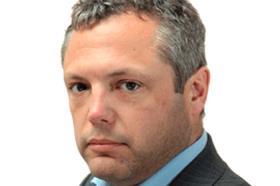In the US there is a bellicose lobby group called Law Students for Climate Accountability. No pun intended, but here is an organisation that shows the way the wind is blowing for the global legal profession on climate change.

Witness this pungent observation from supporter Jon Hanson, a professor of law at Harvard. ‘Legal education – and particularly “elite” law schools – have been captured by corporate interests that profit from, among other things, rendering the planet uninhabitable. The time is long overdue for those law schools and their Big Law benefactors to be judged not according to their lofty justice claims or their astronomical wealth, but according to their actual consequences here on Earth.’
A big majority of Gazette readers will have serious reservations about this, conscious in particular of the inalienable right of all to access justice. Most barristers certainly demur, too, judging by the backlash when some of their number noisily declared they will not prosecute climate protesters or act on fossil fuel projects.
Like it or not, however, climate change is a fast-growing business risk for lawyers. And not simply in terms of curbing business travel in order for the ESG report to signal appropriate virtue.
That is why the Law Society is bang on the money with last week’s groundbreaking guidance on the Impact of Climate Change on Solicitors. A world first, the advice will have many imitators as the focus shifts from perceived despoilers of the planet to the so-called ‘enablers’ who fund and advise them.
In-house ‘enablers’, too. A new film by Richard Curtis – that embodiment of well-heeled liberal sensibility – takes aim at the allegedly ‘toxic relationship’ between UK high street banks and the fossil fuel industry. Beware the bien-pensants.
Chancery Lane will doubtless come in for criticism for allegedly being ‘woke’ here. That is unfair and, more to the point, otiose. Solicitors and firms need to reappraise how they practise, in order to pre-empt the headaches that may arise from fast-evolving attitudes to climate change in business and wider society. They risk losing good business – and good staff – if they fail.































6 Readers' comments